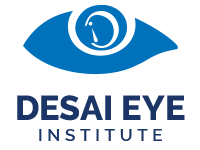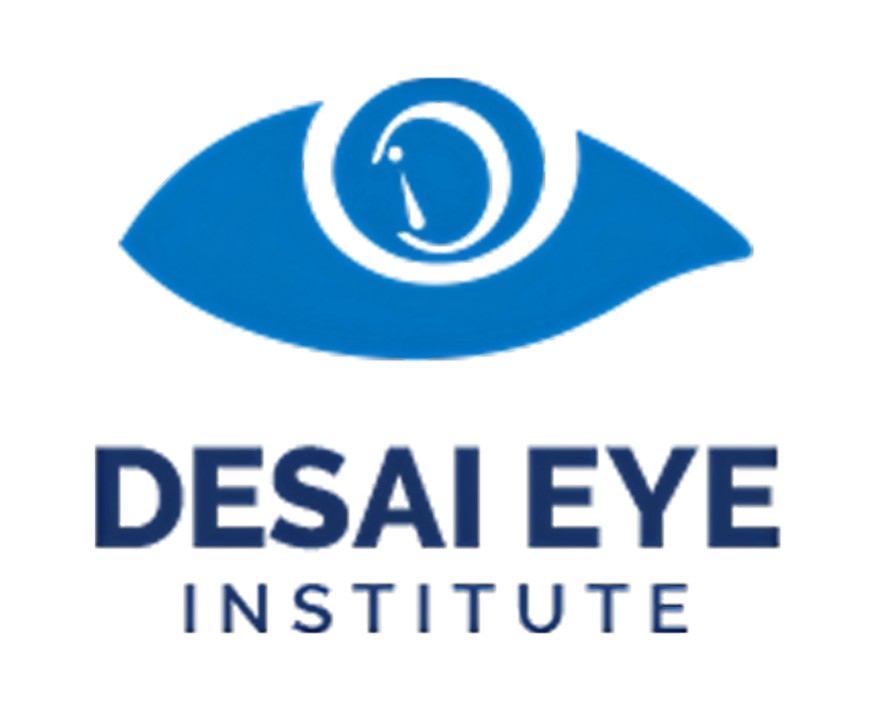Cataracts are not only a condition that affects adults; they can also impact children. Pediatric cataracts, though less common, can lead to significant vision problems and developmental delays if not treated promptly. Desai Eye Institute and Research Centre in Vadodara are committed to providing advanced care for pediatric cataracts, using state-of-the-art technology and expert knowledge to restore and enhance vision in children. Our personalized approach ensures that each young patient receives the best possible care for optimal visual development.
What are Pediatric Cataracts?
Pediatric cataracts refer to the clouding of the natural lens in a child’s eye, which can lead to blurry or obstructed vision. These cataracts may be present at birth (congenital cataracts) or develop later during childhood (acquired cataracts). When left untreated, cataracts in children can cause amblyopia (lazy eye) and other vision impairments that could affect learning and development.
Symptoms of Pediatric Cataracts
The symptoms of pediatric cataracts can vary depending on the severity and type of cataract. Common signs include:
- Cloudy or blurred vision: Children may have difficulty seeing clearly.
- White or cloudy appearance in the eye: In congenital cataracts, the lens may appear cloudy, and the eye may reflect light abnormally.
- Strabismus (crossed eyes): A misalignment of the eyes may occur.
- Delayed visual development: Children may have trouble tracking objects or focusing.
- Sensitivity to light: Children may squint or experience discomfort in bright light.
- Nystagmus (involuntary eye movement): This can develop in some children with cataracts as the eyes may move rapidly and uncontrollably.
If you notice any of these symptoms in your child, it’s important to seek medical attention as soon as possible to ensure early diagnosis and intervention.
Causes of Pediatric Cataracts
Pediatric cataracts can have various causes:
- Congenital Cataracts:
- These are cataracts present at birth and may be caused by genetic factors, maternal infections during pregnancy (e.g., rubella), or metabolic disorders (e.g., galactosemia).
- Acquired Cataracts:
- Trauma: Injury to the eye can lead to the formation of cataracts in children.
- Infections: Certain infections, such as chickenpox or meningitis, may lead to cataract development.
- Systemic Conditions: Conditions like diabetes, retinopathy of prematurity (ROP), or genetic syndromes (e.g., Down syndrome) can increase the risk of cataracts in children.
- Medications: Long-term use of certain medications, such as corticosteroids, can contribute to cataract formation.
Diagnosis of Pediatric Cataracts
Desai Eye Institute and Research Centre uses advanced diagnostic tools to assess and detect pediatric cataracts with precision. Our comprehensive approach includes:
- Comprehensive Eye Examination: Our pediatric ophthalmologists conduct a thorough eye exam to assess the child’s vision, eye alignment, and overall eye health.
- Slit-Lamp Examination: This tool helps the doctor examine the front and back of the eye in detail, identifying cataract formation.
- Optovue OCT (USA): For detailed imaging of the retina and lens, ensuring accurate assessment of cataract severity.
- IOL Master 500 (Germany): This device helps to measure the eye for precise intraocular lens (IOL) selection during cataract surgery.
Our specialized diagnostic tools ensure a comprehensive evaluation of the child’s eye health, which is crucial for determining the best course of action for treatment.
Treatment for Pediatric Cataracts
Treatment for pediatric cataracts typically involves surgery, especially if the cataract is affecting the child’s vision or development. Early treatment is essential to prevent long-term visual problems, such as amblyopia. At Desai Eye Institute, we offer the following treatments:
- Cataract Surgery:
- Phacoemulsification Surgery: This minimally invasive technique uses ultrasound to break up the cloudy lens, which is then removed and replaced with a clear intraocular lens (IOL). We use the Alcon Legion Phaco System (USA) and the Abbott Signature Phaco System (USA) for precision in performing cataract surgeries, ensuring the best possible results for young patients.
- Lensectomy with IOL Implantation: In cases where the cataract is very dense, the entire lens may need to be removed. An artificial intraocular lens (IOL) is then implanted to restore vision.
- Contact Lenses or Glasses:
- After surgery, children may need to wear glasses or contact lenses, depending on the remaining refractive error. This is particularly true if an IOL cannot be implanted.
- Post-Operative Care:
- After surgery, close monitoring is essential to ensure proper healing and to prevent complications like infection or inflammation. Our team will guide you through the recovery process, offering advice on managing medications and eye care.
- Patching Therapy:
- In cases of amblyopia (lazy eye), patching therapy may be recommended to help the brain strengthen the weaker eye. This is often part of the treatment plan after cataract surgery to improve visual outcomes.
- Cataract Surgery:
Why Choose Desai Eye Institute and Research Centre for Pediatric Cataracts?
Desai Eye Institute and Research Centre is a leader in advanced pediatric cataract care in Vadodara. Here’s why we are the trusted choice for your child’s eye care:
- Advanced Technology: We use the latest equipment, including the Zeiss Visucam Lite Fundus Camera (Germany) and the Zeiss Visu 160 Operating Microscope (Germany), for precise diagnosis and treatment of pediatric cataracts.
- Expert Pediatric Ophthalmologists: Our team has extensive experience in diagnosing and treating pediatric cataracts, ensuring the highest level of care for your child.
- Personalized Care: We understand the unique needs of children and provide compassionate, child-friendly care to ensure a comfortable experience for both the child and their family.
- Comprehensive Post-Operative Support: We offer thorough follow-up care and guidance to ensure your child’s recovery is smooth and their vision is optimized.
Contact Us
If you suspect your child has cataracts or if they have been diagnosed with the condition, Desai Eye Institute and Research Centre is here to help. Contact us to schedule an appointment and receive expert care:
Desai Eye Institute and Research Centre
Manharpark Soc., Subhanpura High Tension Line Road,
Near Vimalnath Cross Roads, Santosh Nagar, Subhanpura,
Vadodara, Gujarat 390023
- Phone: 0265 229 2266
- Working Hours:
Monday – Friday: 08:00 AM – 6:00 PM
Saturday: 09:30 AM – 05:00 PM
Sunday: 09:00 AM – 03:30 PM
We also offer cashless facilities with various insurance providers, including New India Insurance, ICICI Lombard, Tata AIG, HDFC Ergo, and more.
Desai Eye Institute and Research Centre are dedicated to ensuring that your child’s vision is preserved and enhanced through expert care for pediatric cataracts. Schedule an appointment today for comprehensive care!


